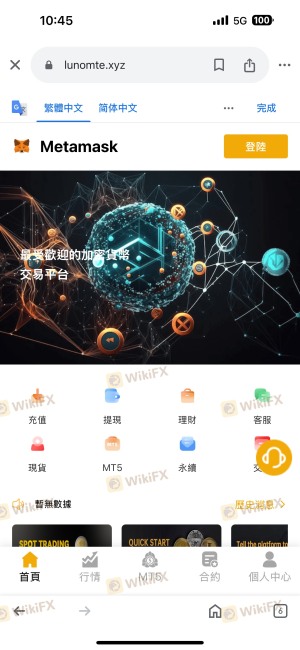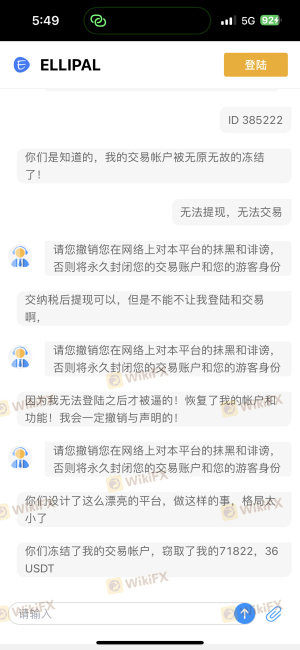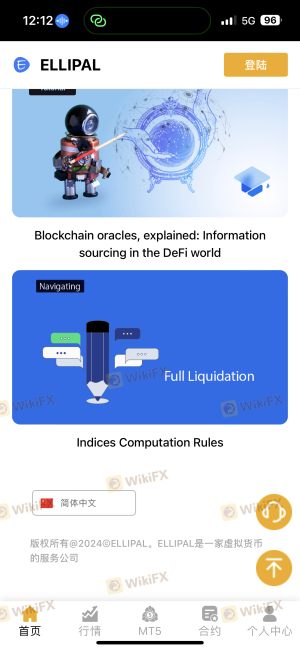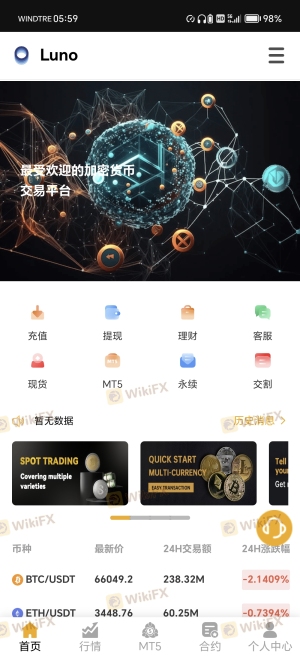Is Luno safe?

Pros
Cons
Is Luno Safe or a Scam?
Introduction
Luno is a cryptocurrency exchange and wallet provider that has garnered attention since its inception in 2013. Positioned as a user-friendly platform, Luno aims to make cryptocurrency trading accessible to both beginners and experienced traders. With operations in over 40 countries, including key markets in Africa and Southeast Asia, Luno has established itself as a significant player in the cryptocurrency space. However, as with any financial service, it is crucial for traders to conduct thorough due diligence before engaging with the platform. This article aims to provide a comprehensive evaluation of Luno's safety and legitimacy by analyzing its regulatory status, company background, trading conditions, customer experiences, and security measures.
Regulation and Legitimacy
Regulatory oversight is a critical factor in assessing the safety of any trading platform. Luno operates in various jurisdictions, which influences its regulatory requirements and compliance. However, it is essential to note that Luno is not regulated by a major financial authority like the Financial Conduct Authority (FCA) in the UK or the Securities and Exchange Commission (SEC) in the US. Instead, it is registered under the Central Bank of Malaysia and adheres to local laws in the countries it operates.
Here‘s a summary of Luno’s regulatory information:
| Regulatory Body | License Number | Regulatory Region | Verification Status |
|---|---|---|---|
| Central Bank of Malaysia | N/A | Malaysia | Registered |
Despite the lack of comprehensive regulation, Luno has implemented several compliance measures, including Know Your Customer (KYC) and Anti-Money Laundering (AML) protocols. The absence of significant regulatory oversight raises questions about Luno's accountability and the protection of user funds. However, the platform has not reported any significant compliance issues or regulatory sanctions, which may indicate a commitment to operating within the legal framework.
Company Background Investigation
Luno was founded in 2013 as BitX and later rebranded in 2016. The company has its headquarters in London, UK, and has expanded its operations to various emerging markets. Its ownership structure includes significant backing from the Digital Currency Group (DCG), a well-known investor in the cryptocurrency space. This affiliation lends a degree of credibility to Luno, as DCG is recognized for its investments in various blockchain and cryptocurrency projects.
The management team at Luno comprises professionals with backgrounds in technology and finance, many of whom have experience working with companies like Google, Amazon, and Morgan Stanley. This expertise contributes to Luno's operational efficiency and strategic direction. Transparency is a cornerstone of Luno's operations, as it provides users with clear information regarding its services, fees, and security measures.
Trading Conditions Analysis
Luno's trading conditions are another essential aspect to consider when evaluating its safety. The platform offers a straightforward fee structure, with trading fees typically around 0.1% for market orders. However, users should be aware of additional costs associated with using the platform, such as withdrawal fees that can vary based on network traffic.
Heres a breakdown of Luno's core trading costs:
| Fee Type | Luno | Industry Average |
|---|---|---|
| Major Currency Pair Spread | 0.1% | 0.2% |
| Commission Model | 0% for Makers, 0.1% for Takers | 0.1%-0.2% |
| Overnight Interest Range | N/A | Varies |
While Luno's fees are competitive, the platform's limited selection of cryptocurrencies may not appeal to traders looking for diversity in their investments. The focus on major cryptocurrencies like Bitcoin and Ethereum is beneficial for newcomers but may restrict seasoned traders seeking a broader range of options.
Customer Fund Security
When it comes to the safety of customer funds, Luno employs several measures to protect user assets. The majority of cryptocurrencies are stored in "deep freeze" wallets, which are multi-signature wallets kept offline to minimize the risk of hacking. This security feature is crucial for safeguarding user funds from potential cyber threats.
Luno also adheres to strict KYC and AML procedures, ensuring that user identities are verified before engaging in trading activities. Additionally, the platform offers two-factor authentication (2FA), adding an extra layer of security for user accounts. However, it is important to note that no system is entirely foolproof, and users must remain vigilant in protecting their account credentials.
Historically, Luno has not experienced any major security breaches, which is a positive indicator of its commitment to user safety. However, potential users should remain aware of the inherent risks associated with trading cryptocurrencies, as the market is still susceptible to volatility and fraud.
Customer Experience and Complaints
User feedback is a valuable resource for assessing the overall reliability of a trading platform. Luno generally receives positive reviews for its user-friendly interface and efficient customer service. However, some common complaints include issues related to account verification delays and difficulties in withdrawing funds.
Heres a summary of common complaint types and their severity:
| Complaint Type | Severity | Company Response |
|---|---|---|
| Account Verification Delays | Moderate | Timely response |
| Withdrawal Issues | High | Slow resolution |
For instance, some users have reported delays in processing withdrawal requests, which can be frustrating, especially during periods of high market activity. Luno has responded to these issues by improving its customer support channels and providing clearer communication regarding withdrawal times.
Platform and Trade Execution
Luno's trading platform is designed to be intuitive and accessible for users of all experience levels. The platform offers a seamless trading experience, with features that include real-time market data and advanced charting tools. However, the execution quality and speed can vary, particularly during periods of high volatility.
While Luno does not exhibit signs of platform manipulation, users should remain cautious, as any trading platform can experience issues related to slippage and order rejections during peak trading times. Overall, Luno's platform performance is generally reliable, but users should be prepared for potential fluctuations in execution quality.
Risk Assessment
Engaging with Luno involves various risks that traders should consider before proceeding. The lack of comprehensive regulatory oversight is a significant concern, as it may impact the protection of user funds. Additionally, traders must be aware of the inherent risks associated with cryptocurrency trading, including market volatility and potential cybersecurity threats.
Heres a risk summary for Luno:
| Risk Category | Risk Level (Low/Medium/High) | Brief Explanation |
|---|---|---|
| Regulatory Risk | High | Lack of comprehensive regulation |
| Market Volatility | High | Cryptocurrency prices can fluctuate significantly |
| Cybersecurity Risk | Medium | Potential for hacking, although mitigated by security measures |
To mitigate these risks, users are advised to employ strong security practices, such as enabling 2FA and using secure passwords. Additionally, traders should consider starting with smaller investments until they become more familiar with the platform and its features.
Conclusion and Recommendations
In conclusion, while Luno presents itself as a user-friendly and secure platform for cryptocurrency trading, potential users should exercise caution. The lack of comprehensive regulatory oversight raises concerns about the overall safety of user funds. However, Luno has demonstrated a commitment to security through its cold storage practices and KYC procedures.
For traders who prioritize ease of use and are focused on major cryptocurrencies, Luno may be a suitable choice. However, those seeking a broader range of cryptocurrencies or lower fees may want to explore alternative platforms. Overall, it is essential for traders to conduct thorough research and assess their risk tolerance before engaging with any trading platform.
In summary, is Luno safe? While it is not a scam, traders should remain vigilant and informed about the potential risks associated with using the platform.
Is Luno a scam, or is it legit?
The latest exposure and evaluation content of Luno brokers.




Luno Similar Brokers Safe
Whether it is a legitimate broker to see if the market is regulated; start investing in Forex App whether it is safe or a scam, check whether there is a license.
Luno latest industry rating score is 1.32, the higher the score the safer it is out of 10, the more regulatory licenses the more legitimate it is. 1.32 If the score is too low, there is a risk of being scammed, please pay attention to the choice to avoid.